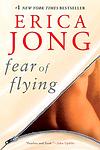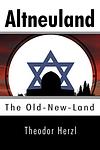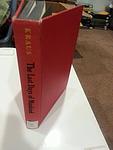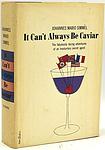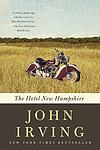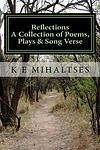The Greatest "Vienna, Fiction" Books of All Time
Click to learn how this list is calculated.
This list represents a comprehensive and trusted collection of the greatest books. Developed through a specialized algorithm, it brings together 300 'best of' book lists to form a definitive guide to the world's most acclaimed books. For those interested in how these books are chosen, additional details can be found on the rankings page.
Genres
Countries
Date Range
Reading Statistics
Click the button below to see how many of these books you've read!
Download
If you're interested in downloading this list as a CSV file for use in a spreadsheet application, you can easily do so by clicking the button below. Please note that to ensure a manageable file size and faster download, the CSV will include details for only the first 500 books.
Download-
1. The Man Without Qualities by Robert Musil
"The Man Without Qualities" is a satirical novel set in Vienna during the last days of the Austro-Hungarian Empire. It follows the life of Ulrich, a thirty-two-year-old mathematician, who is in search of a sense of life and reality but is caught up in the societal changes and political chaos of his time. The book explores themes of existentialism, morality, and the search for meaning in a rapidly changing world.
-
2. Fear of Flying by Erica Jong
The novel follows the journey of a 29-year-old poet who is struggling with her identity and self-worth. She is in an unhappy marriage and fantasizes about a life of sexual and personal freedom. Her fantasies center around the "zipless fuck", a spontaneous and impersonal sexual encounter. She embarks on an affair with a British psychoanalyst in an attempt to realize her fantasies, but ultimately learns that true liberation comes from within.
-
3. The Royal Game by Stefan Zweig
"The Royal Game" is a gripping novella about a man who, while in solitary confinement by the Nazis, steals a book of past chess games and plays them all in his mind to keep his sanity. Once freed, he becomes a chess master but his mental state is fragile. On a cruise ship, he is challenged to a game by the reigning world champion, leading to a psychological battle that pushes him to the brink of madness.
-
4. The Sleepwalkers by Hermann Broch
"The Sleepwalkers" is a trilogy that explores the psychological transformation and moral decay of German society between 1888 and 1918. The narrative follows three main characters: Joachim von Pasenow, a romantic military officer; August Esch, a pragmatic bookkeeper; and Claus von Pasenow, an intellectual and World War I soldier. The book uses these characters to depict the shift from a stable, traditional society to a modern, aimless one, examining the individual's struggle with societal change and the disintegration of values.
-
5. Auto Da Fé by Elias Canetti
"Auto Da Fé" is a story about Peter Kien, a renowned sinologist who is obsessed with his library of books. His life takes a turn when he marries his illiterate housekeeper, Therese, who is only interested in his wealth. After a series of mishaps, Kien is tricked out of his home and ends up living on the streets. The novel explores themes of obsession, intellectualism, and the destructive power of the mind.
-
6. The Third Man by Graham Greene
Set in post-World War II Vienna, the story revolves around an American writer who arrives in the city to discover that his childhood friend, whom he had planned to meet, has recently died in a mysterious accident. As he delves deeper into the circumstances surrounding his friend's death, he uncovers a web of intrigue involving black market dealings, corrupt officials, and a complex moral landscape. The writer's investigation leads him to question loyalty, morality, and the ambiguous nature of friendship in a city divided by occupation and rife with espionage and criminality.
-
7. The Piano Teacher by Elfriede Jelinek
"The Piano Teacher" is a dark exploration of power dynamics, sexuality, and repression. The story revolves around a piano teacher at a prestigious music school in Vienna who lives with her overbearing mother in a state of emotional and sexual repression. Her life takes a turn when she becomes sexually involved with a young, self-assured student. The relationship, marked by sadomasochistic games and emotional manipulation, spirals out of control, leading to a tragic end. The book is a profound critique of bourgeois values and the oppressive structures of society.
-
8. Extinction by Thomas Bernhard
"Extinction" is a novel that explores the dark and complex themes of family, identity, and history through the eyes of its protagonist, a professor living in Rome. When he receives news of the deaths of his parents and brother in a car accident, he is forced to confront his past and his Austrian heritage. The narrative delves into his thoughts and feelings, his criticisms of his family and society, and his philosophical musings on life and death, all while he prepares to return to his family's estate for the funeral. The novel is renowned for its dense, stream-of-consciousness style and its unflinching examination of the human condition.
-
9. Concrete by Thomas Bernhard
The book is a darkly introspective narrative that delves into the mind of a reclusive, obsessive intellectual who is struggling to complete his scholarly work on the composer Mendelssohn. As he grapples with his own ailments and the perceived mediocrity of his surroundings, the protagonist's stream-of-consciousness monologue reveals his deep-seated anxieties, self-loathing, and profound isolation. The narrative is a relentless examination of the protagonist's psyche, showcasing his critical view of society and his own personal relationships, which are fraught with tension and dysfunction. Through this, the novel explores themes of artistic creation, intellectual elitism, and the suffocating nature of expectations and familial obligations.
-
10. Woodcutters by Thomas Bernhard
Woodcutters is a darkly humorous critique of Vienna's artistic elite. The story takes place over the course of a single evening, as the narrator attends a dinner party in honor of a recently successful actor. As the evening progresses, he reflects on the pretentiousness and hypocrisy of the guests, the mediocrity of their artistic achievements, and the tragic suicide of his former lover. The novel is a scathing indictment of the vanity and self-delusion of the artistic community.
-
11. Confusion by Stefan Zweig
"Confusion" is a compelling narrative that explores the intense and passionate relationship between a student and his charismatic professor. Set in the early 20th century, the story unfolds as the protagonist becomes entangled in the professor's personal life, discovering his mentor's secret past, his struggling marriage, and his hidden homosexual desires. The book presents a profound exploration of human emotions, identity, and the complexities of love, against the backdrop of the societal norms of the time.
-
12. Beware Of Pity by Stefan Zweig
The novel explores the complex emotions and consequences that arise when a young lieutenant, succumbing to societal pressure, feigns romantic interest in a disabled young woman. His pity-driven actions lead to an entanglement of obligation, guilt, and false hope, ultimately culminating in a tragic series of events. Set against the backdrop of the Austro-Hungarian Empire on the brink of World War I, the story delves into the psychological depths of its characters, examining the moral dilemmas and the devastating impact of pity when it is mistaken for love.
-
13. None but the Brave by Arthur Schnitzler
"None but the Brave" is a novel that explores the complexities of human emotions, relationships, and social norms in the early 20th century. The story follows a group of middle-class Austrians whose comfortable lives are disrupted when they become entangled in a series of romantic and sexual affairs. The narrative delves into their individual struggles, their moral dilemmas, and the societal expectations that they grapple with. The book is a profound examination of the human condition, highlighting the courage it takes to face one's desires and fears.
-
14. Weights And Measures by Joseph Roth
"Weights and Measures" is a poignant narrative that delves into the life of a conscientious imperial weights and measures inspector, who is uprooted from his contented existence in the city to a remote border town. In this new environment, he struggles with the corruption and indifference of the local merchants, which stands in stark contrast to his own principled nature. His sense of duty and his quest for justice become increasingly burdensome, leading to a profound personal crisis that reflects the broader decay of societal values in a world on the brink of great change and upheaval.
-
15. Wittgenstein's Nephew by Thomas Bernhard
"Wittgenstein's Nephew" is a semi-autobiographical novel that explores the friendship between the narrator and his friend Paul, who is the nephew of the famous philosopher Ludwig Wittgenstein. The story takes place in Vienna and is set against the backdrop of the Austrian mental health system. The novel delves into themes of sanity, insanity, and the fine line that separates the two, while also offering a critique of Austrian society. It is a meditation on the nature of illness, both physical and mental, and the impact it has on personal relationships and one's perception of the world.
-
16. The White Hotel by D. M. Thomas
The book follows the life of Lisa Erdman, a half-Jewish opera singer, through her erotic fantasies, her analysis with Sigmund Freud, her subsequent life in pre-war Vienna, and her eventual death in a Nazi concentration camp. The narrative is presented in a variety of styles, including erotic poetry, Freud's case study, third-person narrative, and a surrealistic opera libretto. The novel explores themes of sexuality, psychoanalysis, and the human capacity for evil and destruction.
-
17. Altneuland by Theodor Herzl
The book is a seminal work of Zionist fiction that envisions the transformation of a future Jewish state in the land of Israel into a utopian society. It tells the story of two European Jews who, disillusioned with the anti-Semitism of the late 19th century, travel to Palestine and return 20 years later to find it has become a flourishing, modern society. The novel presents a vision of a multicultural, technologically advanced, and cooperative community where Jews live in peace, prosperity, and harmony with their neighbors. The narrative is a blend of social and political commentary, advocating for the establishment of a Jewish homeland through the power of innovative ideas and communal effort.
-
18. Traumnovelle by Arthur Schnitzler
The narrative delves into the psyche of a Viennese doctor who, after his wife confesses to having sexual fantasies about another man, embarks on a nocturnal journey of sexual and moral discovery. His odyssey leads him through a series of increasingly surreal and erotic encounters, culminating in a secret masquerade ball that exposes the darker side of human desire and the complexities of the human soul. The story explores themes of jealousy, fidelity, and the boundaries between reality and dreams, ultimately questioning the very nature of human identity and the masks people wear in society.
-
19. The Last Days of Mankind by Karl Kraus
"The Last Days of Mankind" is a satirical play that provides a critical commentary on the socio-political climate during World War I. The narrative presents a stark portrayal of the absurdity of war and the destructive forces of propaganda, bureaucracy, and nationalism. The author uses a variety of literary techniques, including parody, satire, and direct quotes from contemporary sources, to highlight the folly and tragedy of war. The play is known for its unique style, rich language, and its profound critique of society and culture during a time of great upheaval and conflict.
-
20. It Can't Always Be Caviar by Johannes Mario Simmel
The novel is a thrilling espionage adventure following the life of Thomas Lieven, a charming and resourceful banker who is reluctantly recruited into the world of international espionage during World War II. Despite his desire for a peaceful life, Lieven finds himself entangled in a web of intrigue, assuming multiple identities and engaging in a series of daring escapades across Europe. His culinary skills, wit, and luck become his greatest assets as he navigates through the dangerous game of espionage, outsmarting intelligence agencies and avoiding peril at every turn. The story is a blend of humor, romance, and suspense, showcasing the protagonist's attempts to stay alive and out of prison while reluctantly serving multiple warring governments.
-
21. The Hotel New Hampshire by John Irving
The novel follows the Berry family, whose eccentricities and resilience are tested over generations, particularly through their experiences running various incarnations of the eponymous hotel. From their original establishment in New England to a second in Vienna, the Berrys encounter a cast of quirky characters, endure tragedies, and navigate complex relationships. Themes of love, loss, and the pursuit of dreams are explored against a backdrop of political and social upheaval, with the family's unique motto, "Keep passing the open windows," serving as a refrain for their determination to persevere in the face of life's absurdities and challenges.
-
22. The Loser by Thomas Bernhard
"The Loser" is a philosophical novel that revolves around the complex relationship between three friends who are all piano virtuosos. The narrative is driven by the protagonist's obsession with his friend's suicide, which he believes was triggered by the realization that they could never surpass the genius of their third friend. The book delves into the protagonist's psyche as he grapples with themes of talent, ambition, failure, and the destructive power of comparison.
-
23. Strange Pilgrims by Gabriel García Márquez
"Strange Pilgrims" is a collection of twelve short stories that explore the lives of Latin American characters who find themselves in unfamiliar European settings. The tales, infused with magical realism, delve into themes of dislocation, love, death, and the surreal experiences of immigrants. The characters, often caught between their old world and the new, face unexpected situations and encounters that challenge their understanding of reality. The stories weave a tapestry of poignant, strange, and sometimes whimsical narratives that reflect the author's signature style of blending the fantastic with the ordinary.
-
24. Poems And Verse Plays by Hugo von Hofmannsthal
This collection brings together an exquisite array of poetry and dramatic works by a prominent figure in the literary world, known for his pivotal role in the development of modernist literature in the German-speaking world. The book showcases the author's linguistic virtuosity and deep understanding of the human condition, with poems that range from the lyrical to the symbolic, and verse plays that explore themes of identity, existential angst, and the interplay between reality and illusion. The works within this compilation reflect the author's evolution as a writer and his ability to blend classical motifs with contemporary concerns, offering readers a rich tapestry of introspective and philosophical musings.
-
25. Selected Plays And Libretti by Hugo von Hofmannsthal
This collection brings together a selection of dramatic works by a prominent figure in the early 20th-century literary world, showcasing his talent for blending poetic language with profound psychological insight. The plays and libretti included span various genres, from historical dramas to adaptations of classic myths, each marked by the author's exploration of themes such as identity, transformation, and the human condition. The works also reflect the author's collaboration with influential composers of his time, contributing to the evolution of opera and theater through his innovative approach to storytelling and character development.
Reading Statistics
Click the button below to see how many of these books you've read!
Download
If you're interested in downloading this list as a CSV file for use in a spreadsheet application, you can easily do so by clicking the button below. Please note that to ensure a manageable file size and faster download, the CSV will include details for only the first 500 books.
Download
